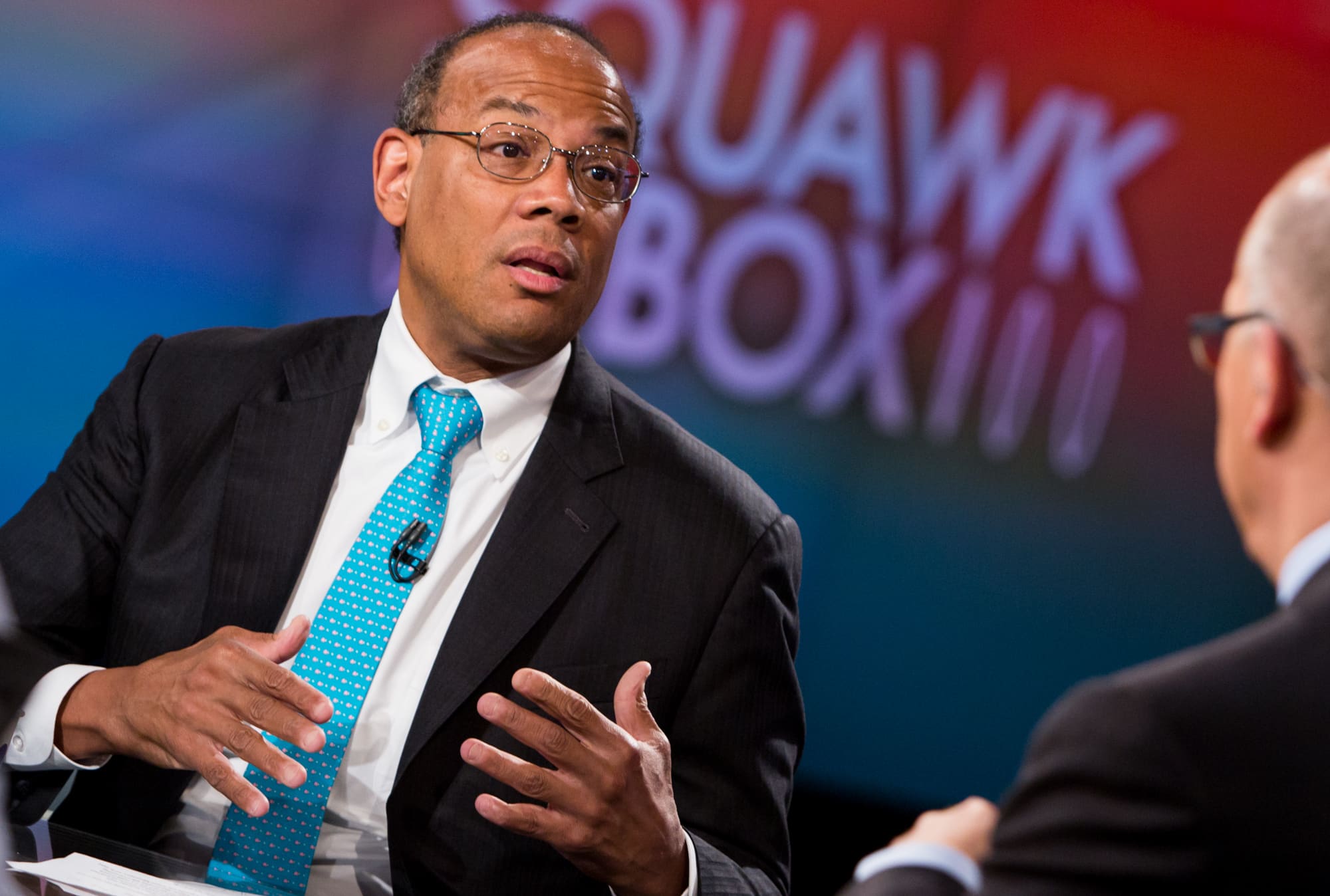John Rogers of Ariel Investments told CNBC on Wednesday that corporations can play a critical role in helping close the racial wealth gap in the United States.
In an interview on “Closing Bell,” the firm’s co-CEO and chief investment officer pointed to retirement savings plans as one place to start addressing it. But even then, Rogers said there must be a recognition that disparities around 401(k) contributions exist, too.
“One of the ways to get progress is for all major corporations and anchor institutions in our community to understand there is a problem, and that their African American employees, even though they might be at similar percentage comparability when it comes to joining the 401(k) plan, when you look behind the surface you’ll see that African Americans will often have much less saved,” said Rogers, who founded Ariel in 1983.
Chicago-based Ariel — the first African American-led firm to have a family of mutual funds — recently released a survey conducted with Charles Schwab that looked at the wealth gap between Black and white Americans, as well as their exposure to the stock market.
It found that while Black Americans now report similar ownership levels of 401(k) plans as white respondents, at 53% compared with 55%, respectively, differences in savings rates persist. According to the report, white Americans participating in 401(k) plans invest 26% more in their retirement accounts each month than Black counterparts, translating to a monthly difference of $291 versus $231.
Rogers said there are a number of factors contributing to Black Americans accumulating less in retirement savings than white Americans. “We will be in the most conservative investment options, the most conservative funds. We’re much more likely to take hardship loans, early withdrawals to help support expanded families,” Rogers contended.
Adam Jeffery | CNBC
Focusing on disparities in 401(k) plans is significant because retirement accounts made up the largest share of U.S. household wealth at 32.8%, according to an August 2020 report from the Census Bureau. It used data from the end of 2017 and excludes the top 1% of households. Home equity was second, accounting for almost 29% of household wealth, follow by stocks and mutual funds at 10.2%.
“It’s really a responsibility of these anchor institutions to put extra effort on really making sure their minority employees are comfortable in the investments within that 401(k) plan,” Rogers said. “Maybe there should be more minority-owned options within the 401(k) plan that will get minority employees excited about it.”
According to the Federal Reserve’s 2019 Survey of Consumer Finances, white families in the U.S. have a median wealth of $188,200 compared with a median wealth of $24,100 for Black families. That current landscape is the result of myriad inequities adding up throughout U.S. history, Rogers said, while noting the housing crisis and the coronavirus pandemic have more recently served to exacerbate the problem.
‘The wealth gap has been growing larger and larger every year between the African American and the white America. We’ve been behind for a very, very long time,” Rogers said. “Because of the way we came to this country, the historic racism and Jim Crow laws and things that really impacted us, the restrictive covenants that didn’t allow us to buy housing in the fast-growing parts of communities, we were way behind the race when it came to wealth, and it continues to get worse.”
Rogers also was interviewed Wednesday for a CNBC PRO Talks. Subscribe to watch the full interview below and read about his stock picks here.
